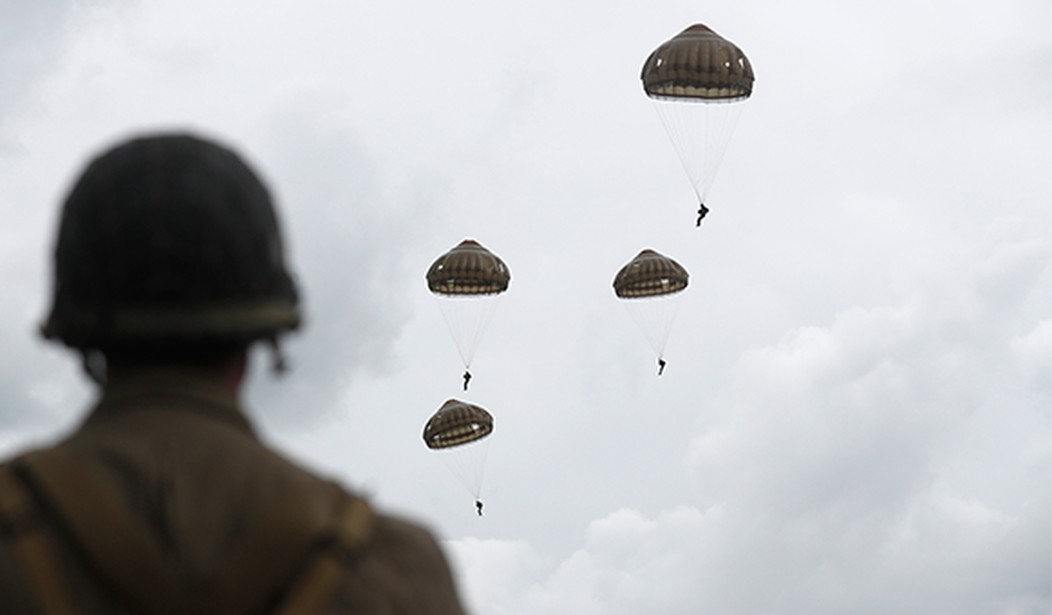Rightly so there is a large amount of attention focused on the upcoming 80th anniversary of the Allied landing at Normandy this coming June 6. However, Normandy was not the initial invasion of Europe by the Western Allies. The invasion of Italy was the first major Western Allied landing on Fortress Europe in World War II. It was also the more difficult of the two Western Allied Fronts and that fact is all the more reason that the American Liberation of Rome, on June 4, 1944, and the larger Italian Campaign should be commemorated.
The Western Allies landed in Italy in September 1943 and immediately saw extremely hard fighting. Italy has always been a defender’s paradise in its central and southern areas. Previous invaders of Italy had, for the most part, initiated operations from north and gone southward. The reason for that is one word, terrain. The Apennine Mountains form a natural defensive line that makes capturing Rome from the South an extremely hard undertaking. These natural barriers, coupled with the military defensive genius of German Field Marshal “Smiling Albert” Kesselring, presented a formidable obstacle to the Western Allies. In just one example, Allied casualties at the Battle of Monte Cassino were two and a half times more than that of the Germans and were also of a higher percentage per capita compared to the size of their fighting force.
The Allies also had problems with command in a diverse coalition that was much more varied than even the Western Front. Not only were the main Western Allies of the British, Canadians, and Americans (to include the segregated 92nd African American Division and 442nd Japanese American Regiment) active in Italy, but Italian soldiers also fought with the Western Allies after King Victor Emmanuel III had Italy switch sides, concurrently inaugurating the Italian Civil War.
Recommended
Soldiers of the British Empire and Commonwealth came from Canada, Australia, New Zealand, India, Rhodesia, South Africa, Nepal and elsewhere. Governments in exile from Czechoslovakia, Poland and Greece also fell under British command while Free French Forces and the 25,000 strong Brazilian Expeditionary Force also fought in Italy. The foot soldiers of different nations performed brilliantly and valiantly while working well together, but the highest levels of command often did not see eye to eye.
Despite substantial difficulties, the Allies moved northward through Italy and, while the advance was often slow, the presence of Allied forces on the Italian mainland had immediate effects.
Soon after landings on the Italian mainland, the King summoned Italian dictator Benito Mussolini to the Royal Palace and dismissed the Duce as Prime Minister. In the days following Victor Emmanuel ordered an armistice signed and, soon after, Italy formally switched sides and entered the war on the side of the Western Allies. Due to this turn of events, German forces quickly occupied the rest of Italy, causing Nazi forces to be away from the more desperate Russian and future Western Fronts. Soon, American troops were nearing the Italian capital of Rome.
However, even in success American troops faced even more obstacles, including their own overrated commander. General Mark Clark, a favorite of Western Allied Supreme Commander Dwight Eisenhower, was the Commanding General of the U.S. 5th Army in Italy. General Clark disobeyed orders from his British superior to cut off the escape route of the German 10th Army and instead focused his attention on an undefended Rome. As a result, two days before Allied forces landed in France, American troops liberated the city on June 6, 1944. They were, justifiably, greeted with ringing church bells and roaring crowds.
The capture of Rome saw the first of three Axis capitals ultimately fall to the Allies (Japan surrendered before the proposed Operation Downfall). However, hard fighting continued on the Italian Front and there were very few mobile actions rivaling those in France or at the Battle of the Bulge. Finally, in the Spring of 1945, a week before forces in Germany surrendered, the Nazi Army in Italy surrendered and Allied troops on the Italian Front met up in Austria with French Forces as well as those of the American Seventh Army commanded by General Alexander Patch. Mussolini was executed by his own people and, after the June 1946 plebiscite, Italy became a Republic and voted out the monarchy.
Today, Italy is a NATO ally but the Italian Front is seldom spoken of when considering the European Theatre of Operations in World War II. While the liberation of Rome came without large scale bloodshed as compared to the D-Day landings two days later, the taking of Italy’s capital by American forces serve as a necessary reminder of the often-neglected sacrifices, of a large number of nations, made on the Italian Front in places like Salerno, Monte Cassino, Anzio and elsewhere. Their sacrifices that will never be forgotten this liberation anniversary and always.
*Views expressed in this article are those of the author and not any government agency

























Join the conversation as a VIP Member